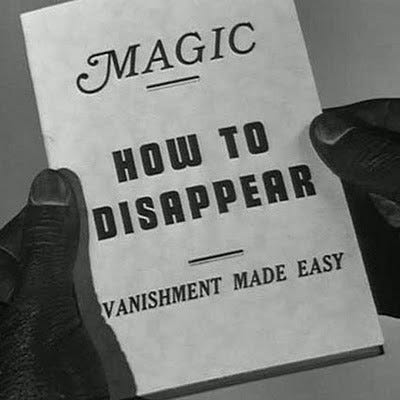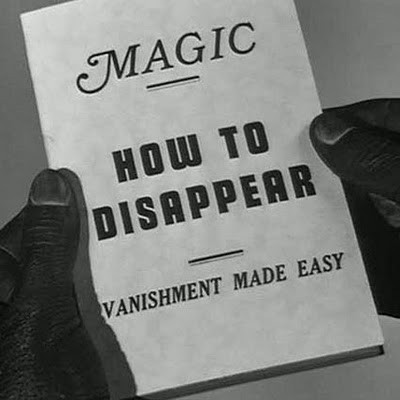A small thing that can go a long way
This article is from my list of nine surprising high performance lessons from Hell’s Kitchen. The show is chock full of swearing, apologies for any colourful language that finds its way in here.

Summary
Top performers remain present while mid and bottom performers disappear.
Presence is established in three ways:
- Awareness
- Bravery/Courage
- Sustained performance
What does being “present” mean?
A chef is failing. The top performer is busy nailing their thing, and helping that person, and/or directing others to help the struggling team member, and/or leading positive pro-active communication and/or-
In the first episodes of a Hell’s Kitchen season there are so many chefs that a top performer might not even be on a station, yet somehow they contribute, others notice.
They are present.
We’ve talked about how top performers communicate, execute, are creative, and learn; they don’t shut down when they are struggling. The sum of those parts is that they are present, even when they are not there.
Of the various skills top performers have, this is one of the hardest to define or learn. It seems to come down to awareness (situational and self), bravery, and sustained performance.
- Awareness allows engagement in the right activity at the right time (and avoids the wrong ones).
- Bravery prevents hiding. Leaders are willing to take the heat at the front of the rocket¹.
- Sustained performance sets the top performer as a positive reference in the minds of others so that they are there, even when they’re not.
Sustained performance
The simplest thing top performers do is to consistently perform.
Simple, not easy, and hugely impactful. Sustained performance over time creates a strong upward trajectory that sets the top performer as the standard to meet, or beat, in the minds of their peers and leadership.
Sustained (high level) performance is the kind of thing that has your name come up positively in meetings you are not in -or keeps you from getting voted into elimination if you’re on Hell’s Kitchen.
Awareness and bravery: what bottom performers get wrong
Awareness and bravery are part of the magic that sets top performers apart. Bottom performers fuck it up.
I learned that courage was not the absence of fear, but the triumph over it. The brave man is not he who does not feel afraid, but he who conquers that fear.
Nelson Mandela
Awareness
If under performers are situationally aware (the meat station is going down!) they generally lack the knowledge, or confidence to do something about it (I’d better start deserts while they get on track). They lack bravery and/or the ability to perform. Often they respond by hiding in low value work, placing blame on others, telling everyone they will solve the problem on their own, or giving up.
Helpful hiding looks like: stepping away to do the dishes, or getting on deserts while entrees are still going out. You know it when you see it.
If they are self aware (I’m sinking!) they tend to shut down or engage in other unhelpful activities like blame.
Often this is because they lack bravery.
Bravery²
People without bravery hide or blame. Bravery is different than confidence; bravery implies a healthy dose of fear. Confidence does not require fear, and can imply a lack of awareness, nothing gets to you (but maybe it should). Recognizing there is something to be afraid of, or worried about, is an important part of being aware enough to take the right action.
In (rarer) cases where bottom performers are brave, they tend to lack awareness, and so argue with Chef. Oops. Yelling at your boss almost never helps. Yelling at Chef Ramsey is just insane.
Regardless of whether they hide, or freak out, they make it clear they are not the problem.
The thing is, if you’re on the losing team and you’re not turning it around, you are part of the problem; no matter where you hide, or what you say.
Outside of the kitchen
You’ve seen these behaviours in the office too.
That struggling teammate who avoids team meetings. The person who focuses time and energy on their useless/redundant/old/off topic report/meeting. The one who sets up a meeting to show they are doing meetings. The one who attends every meeting even when they are not needed. The boss who owns all their work without delegating. Who slows down progress so they can show they are involved. Who …
We could go on and on.
You’ve seen it.
You can spot it a mile away.
The right blend
Top performers listen, give advice, take on something else, bounce to the next station.
They are aware enough to know what to do and how they can help, or if someone else can better help.
They are brave enough to step in to fill the gap, to take the heat.
And their sustained performance sets them as the example of good in the minds of their peers and leaders.
They do not stand around asking what they can do to help.
They just help.
They are present.
I hope you enjoy this series of performance lessons from Hell’s Kitchen. If you have a comment, feedback, or idea add it below, shoot me an email, or send me a tweet.
Keep reading.
Ian
¹ To steal a term from Command Skills in For Your Improvement.
²I also really like the term courage. This article uses the word bravery to match the Nelson Mandela quotation, but you could easily swap it out for courage if you prefer. The key thing is that fear does not prevent action.

